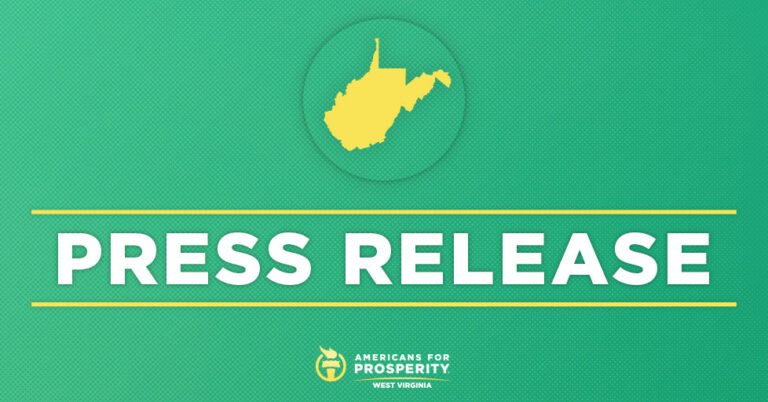
West Virginia has Opportunity to Lead on Occupational Licensing Reform
Trump administration releases report on how states can overhaul onerous occupational licenses
CHARLESTON, WV – Americans for Prosperity-West Virginia (AFP-WV) today commended the Trump administration for issuing a report on how states can reform their occupational licensing laws to ensure they don’t act as barriers keeping people from practicing their desired occupation.
Recent studies show that West Virginia has more burdensome licensing fees and higher barriers to entry compared to its regional neighbors. With West Virginia having a weak labor market, reforming occupational licensing and making it easier for people to earn a fulfilling living will help enable more people to access jobs in the Mountain State.
Americans for Prosperity-West Virginia State Director Jason Huffman issued the following statement:
“The pursuit and attainment of a job is essential for achieving the American dream, but burdensome occupational licensing laws prevent too many West Virginians from reaching their full potential. West Virginians shouldn’t have to ask the government for permission to work and earn a fulfilling living. The Trump Administration has provided our state a guide that shows how we can expand access to meaningful work and ensure occupational licenses are actually used to protect the health and safety of consumers – not established professions.
“This framework closely matches the vision for licensure reform in our Pathway to Prosperity legislative agenda. We urge principled lawmakers to take this opportunity to enact truly transformational policies that will reduce the burdens of occupational licenses and barriers to employment.”
Background:
The Trump Administration called on state governments to act on occupational licensure reform and issued six principles it believes are critical for good reform. The six principles are:
- States and territories should eliminate unnecessary occupational licensing regulations.
- States and territories should ensure that all occupational licensing regulations, including those currently in force, are the least restrictive necessary to protect consumers from significant and substantiated harm, ensure worker safety, and promote competition.
- States and territories should ensure that occupational licensure boards consider the negative effects of any proposed regulation on consumers and job seekers.
- States and territories should recognize the occupational licenses of other States and territories for those individuals who hold a license in good standing and who have not been subject to any complaint or discipline related to their license.
- States and territories should eliminate requirements that needlessly prevent individuals with a criminal record from earning a living in a field unrelated to their criminal conviction.
- States and territories should take immediate action to ensure that military spouses who accompany their spouses on permanent change-of-station orders are not adversely affected by occupational licensing regulations.
In the 1950s, about one-in-twenty Americans required a license to work. Today that number is one-in-four.
Many of these licenses do nothing to protect consumers like they are supposedly intended. Rather, they serve entrenched interests by insulating them from competition. Although proponents of occupational licenses proclaim they serve to improve safety and quality for consumers, research and historical observations suggest otherwise, regularly showing that licensing laws have negligible and even negative effects on health and safety.
An Obama White House report also found that: “Licensing laws also lead to higher prices for goods and services… Moreover, in a number of other studies, licensing did not increase the quality of goods and services, suggesting that consumers are sometimes paying higher prices without getting improved goods or services.”
Research also shows that in more onerously licensed states, entrepreneurship rates are lower among low-income residents, recidivism rates are higher for ex-offenders, and other unintended consequences such as increased crime rates occur due to decreased employment opportunities.

